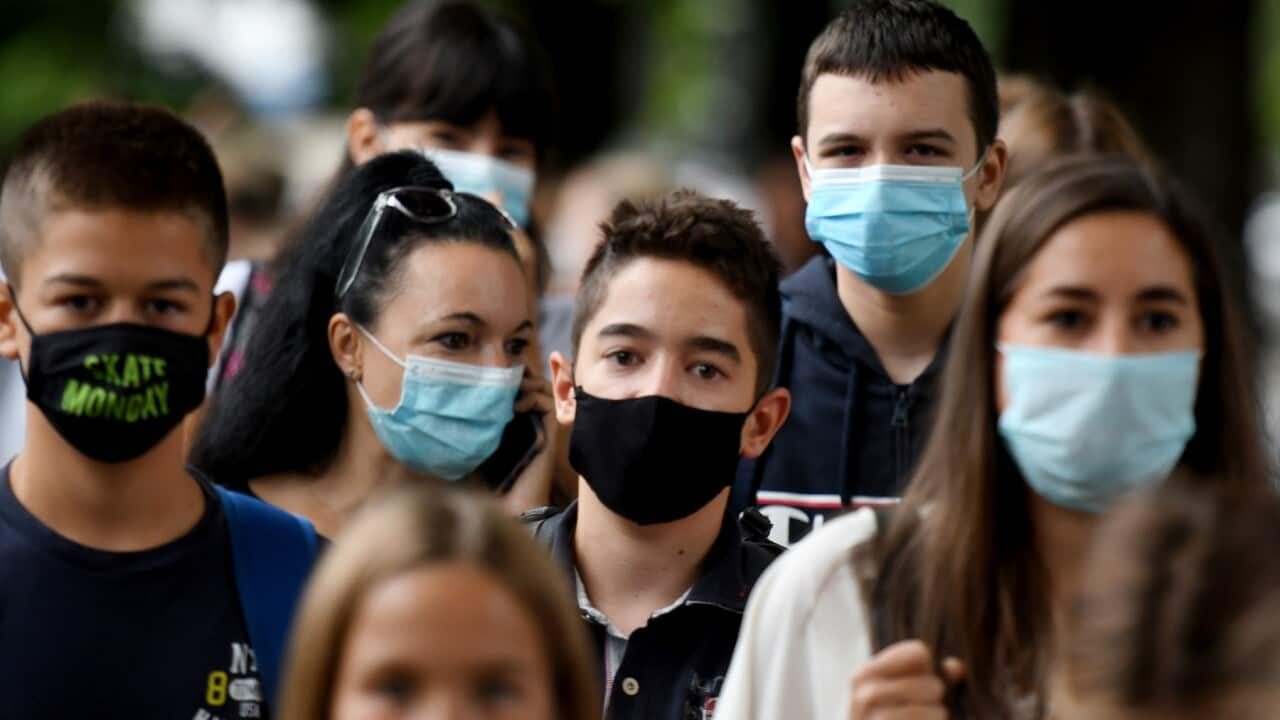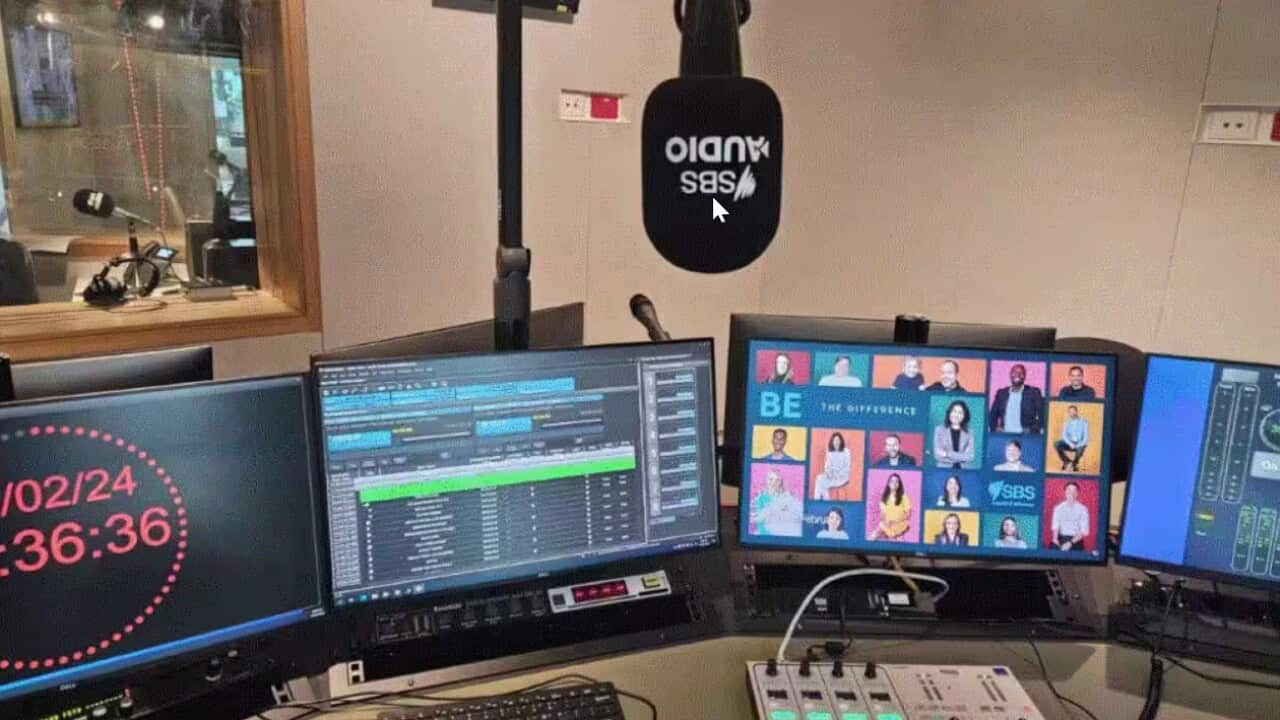Provisional Psychologist Miranda Cashin says the floor of mental health service Headspace is usually bustling with teenagers and students.
But now, the Camperdown site and all its contents - like most venues during the coronavirus pandemic - seems to have frozen in time.
Ms Cashin points to artwork on the walls from the year before: promotional banners for events that apparently never happened, and kitchen utensils remain undisturbed in their drawers.
[[“So it’s quite a lonely and empty space at the moment.“]]
Federally funded not-for-profit organisation Headspace offers mental health support to those aged 12 to 25.
Its services have been in high demand from a demographic arguably hardest-hit by the pandemic.
Ms Cashin says younger Australians have been battling severe economic and psychological challenges all year.
Siddhant Acharya, 27-year-old arrived in Australia in February, excited to study abroad for what would be the longest time away from his family in Mumbai, India.
As rates of coronavirus began to soar in Australia, Sidd lost his job in public relations and moved to a place with more affordable rent.
But he struggled to connect with his new housemates
Sidd moved three times over the course of the year, before finding his current place.
One in three workers aged 18 to 24 lost their jobs between March and April, according to the Australian Bureau of Statistics [[ABS]].
Most young Australians worked in industries directly affected by border closures, travel restrictions and social-distancing measures, like hospitality and retail.
Widespread unemployment forced students like Sidd to move house, borrow money or take out personal loans.
Lauren Solomon is the C-E-O of Consumer Policy Research Centre [[CPRC]].
She says rates of younger Australians borrowing and taking out personal loans sky-rocketed during the pandemic.
Headspace's Miranda Cashin says financial worries greatly affect mental health.
Young Australians have benefited the least of any age group from the government’s support packages this year, with JobKeeper failing to cover most of Australia’s one million casual workers.
International students like Sidd were excluded from these payments entirely.
Two major surveys run by the Melbourne Institute at the University of Melbourne found almost a quarter ((23 per cent)) of those aged 18-24 in Australia reported high levels of mental distress during 2020, compared to 9 per cent in 2017.
But Ms Cashin says there’s still a lot of stigma around seeking help.
Conveying feelings in therapy can be even more challenging for those trying to talk to a counsellor from a different cultural background.
Ms Cashin says accessing mental health services can be more difficult in regional areas, where there are fewer support services.
It's something 29-year-old Richard Mason struggled with during the pandemic.
The Consumer Policy Research Centre's Ms Solomon says younger Australians may carry a debt burden into their future.
She says as supports such as JobKeeper and JobSeeker taper off in the coming months, younger Australians may be more vulnerable to unsustainable lending practices.
The Centre is calling on parliamentarians to block proposed changes to responsible lending laws.
If you or someone you know requires mental health support, you can get assistance from Lifeline on 13 11 14 or Beyond Blue 1300 22 46 36.
For financial difficulties go to www.moneysmart.gov.au or call the National Debt Helpline on 1800 007 007.
And for health and support measures currently in place in response to the COVID-19 pandemic in your language, visit sbs.com.au/coronavirus.
- People in Australia must stay at least 1.5 metres away from others. Check your state’s restrictions on gathering limits.
- If you are experiencing cold or flu symptoms, stay home and arrange a test by calling your doctor or contact the Coronavirus Health Information Hotline on 1800 020 080.
- News and information is available in 63 languages at sbs.com.au/coronavirus
- Please check the relevant guidelines for your state or territory: NSW, Victoria, Queensland, Western Australia, South Australia, Northern Territory, ACT, Tasmania.




